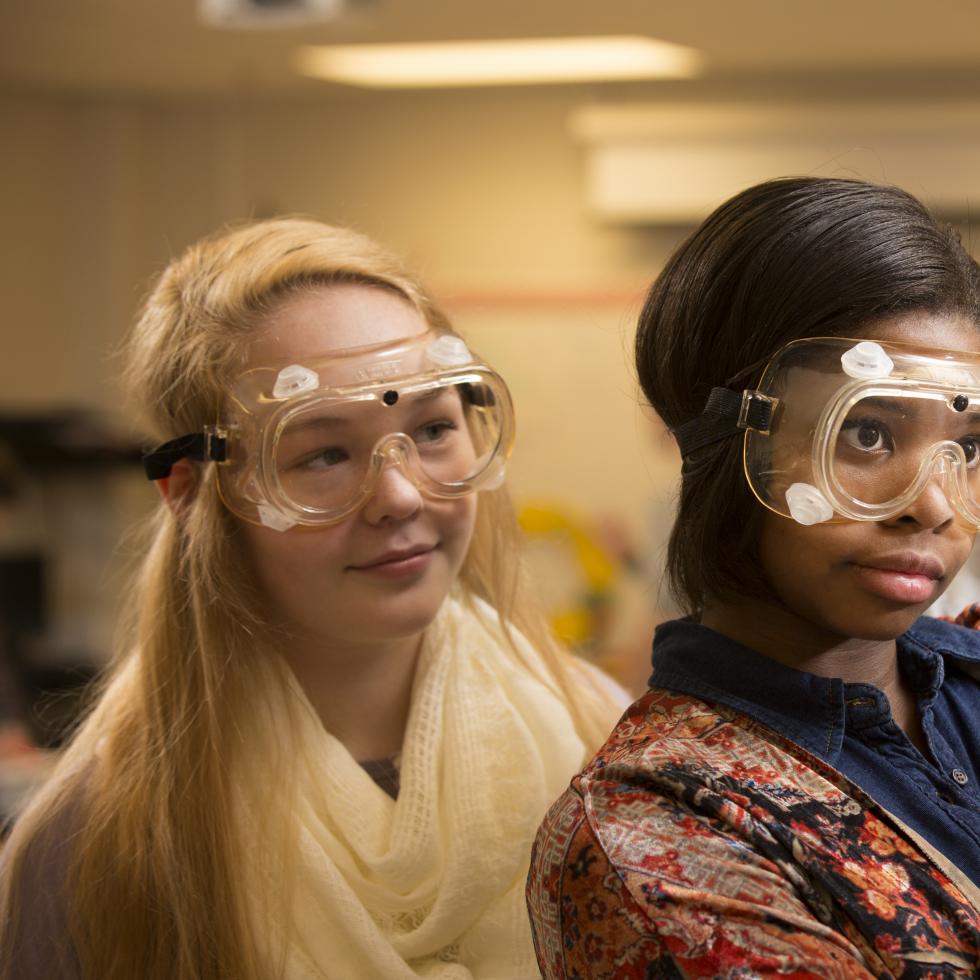SREB’s Advanced Career: Investing in Tomorrow’s Workforce
Originally published on the U.S. Chamber of Commerce Foundation blog.
 Over the past decade there has been
widespread agreement that increasing student access to advanced
coursework is a good thing. It is good not only because it raises
the rigor of their education, but also because it promotes access
to college and helps students get a head start.
Over the past decade there has been
widespread agreement that increasing student access to advanced
coursework is a good thing. It is good not only because it raises
the rigor of their education, but also because it promotes access
to college and helps students get a head start.
With the recent passage of the Every Student Succeeds Act (ESSA) there is more attention than ever on promoting access to advanced coursework, but also a golden opportunity to rethink advanced coursework and to promote it within the context of career readiness.
Career readiness is an area of increasing interest in states and communities and one that can ensure students make a meaningful transition to good paying jobs and careers. The Southern Regional Education Board (SREB) has long recognized the importance of career readiness in our schools and recently launched a new Advanced Career (AC) curricula that helps prepare high school students to meet local and state economic needs by joining career pathway studies with college preparatory academic studies. Today, one or more AC curricula are being implemented in 106 schools in 19 states.
The AC courses are a blend of academic, technical, problem-solving and 21st-century skills all applied to complete at least five or six projects per course. Projects encourage students to be creative and challenge student teams to explore different design approaches. These projects address what employers demand today in a workforce, namely critical thinking, complex-problem solving, written and oral communication, and applied mathematical and technical knowledge in real-world settings.
 Panels from business and
industry, colleges and high schools helped shape the curricula
and the end-of-course student progress assessments. Local
employees serve as mentors, judge student projects, arrange job
shadowing and internships, and are available for other
assistance.
Panels from business and
industry, colleges and high schools helped shape the curricula
and the end-of-course student progress assessments. Local
employees serve as mentors, judge student projects, arrange job
shadowing and internships, and are available for other
assistance.
The rigor of the courses is intellectually demanding and provides the type of deeper learning experiences that Advanced Placement courses provide for academic studies. The intent is to implement AC career pathway courses as part of a structured program of studies that aligns with two- and four-year colleges. Under this scenario, students may earn college credits for at least two AC courses. Under a senior year option, qualified AC students could earn up to 30 semester hours of college credits in a redesigned senior year experience.
There are eight pathways available to high schools now that were designed with input from business and industry:
- Aerospace Engineering
- Clean Energy Technology
- Energy and Power
- Global Logistics & Supply Chain Management
- Health Informatics
- Informatics
- Innovations in Science and Technology
- Integrated Production Technologies
(Pathways in Oil and Gas and Automated Materials Joining Technologies are in development)
After completing at least one AC course, nearly 90 percent of students say the curricula are challenging; 67 percent say the course experience enabled them to firm up a career goal; and 84 percent say they would recommend an AC pathway to a friend.
This fall, AC is holding nine showcases and webinars highlighting the curricula. These showcases are an excellent opportunity for chambers of commerce, business associations and employers to learn more about the AC curricula.
You can also learn more by reading a recent interview with three AC teachers, who each bring a wealth of experience to their classes.
Gene Bottoms
SREB Senior Vice President

